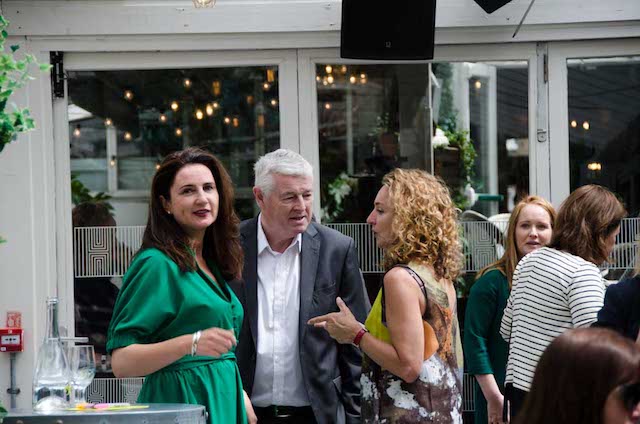We discussed all manner of things relating to the Irish economy and three key themes emerged. Concerns around Brexit (obvs), pressures on Infrastructure (housing crises etc..) and talent. Talent everyone earnestly explained was a huge issue. There was simply no talent out there.
Shortly after, two things happened. We ran another successful Re-entry workshop for women getting back into the workforce and I also received some particularly impressive CVs from hugely skilled and talented people not looking for a traditional, permanent job. In both instances the people involved had once been part of the traditional definition of “talent”. They had worked in world class organisations and climbed steadily up the corporate ladder. They were all highly qualified and worked around the world in London, Hong Kong and Sydney. But none of them were looking for a permanent job but rather to work on a project basis.
And it struck me that we need to reframe what talent looks like. Yes talent can be an ambitious twenty five year old happy to work all the hours to gain experience and likes nothing more then hopping on a plane and flying off to a corporate offsite. Talent can also be the person who has been with the company for many years with a bank of experience and knowledge, the person who knows how everything “really” works. They are both sources of invaluable talent. But talent can also be someone who joins a company for a short period of time, a project lifecycle or to serve an immediate need and adds value in terms of their skills and experience which has been built up outside of that organisation.
There remains this perverse notion that we need to “own” talent. That the ideal worker norm is someone who is plugged permanently into the organisation, works for no- one else and can be called on at any time of day. We need to let that go. We need to think not in terms of headcount and job specs but how can we manage a truly agile workforce and how do we access that talent (hint not through traditional channels). Scaling companies need to think about building up a talent pool outside of their organisation, trusted individuals they can call on to flex up and down the organisation as needed.
For many people formerly known as “talent” the traditional job structures no longer work. Yes that can be due to caring responsibilities or study or travel or any number of things. The point is to access all types of talent we need to widen our definition. I often talk about our candidates because I think they are so great (I am genuinely intimidated by some of them and how accomplished they are). But it struck me recently I should talk about our customers too. For me they are the trailblazers. They have opened their mind and decided to explore new ways of working. They have not followed the crowd and done the easy thing. Rather then copying and pasting the same job spec that has been around since year dot, posting it on a jobs board and praying they get the requisite “talent” to apply they have taken a different approach. They have looked to see what they really needed, thought about how the work could be done in an agile way, either flexibly, on a contract or project basis. Then after all that critical thinking they have reached out to a start up like ours rather then calling the standard agencies. As a result they often have no problem accessing talent. The talent is out there. You just need to think about it differently.

